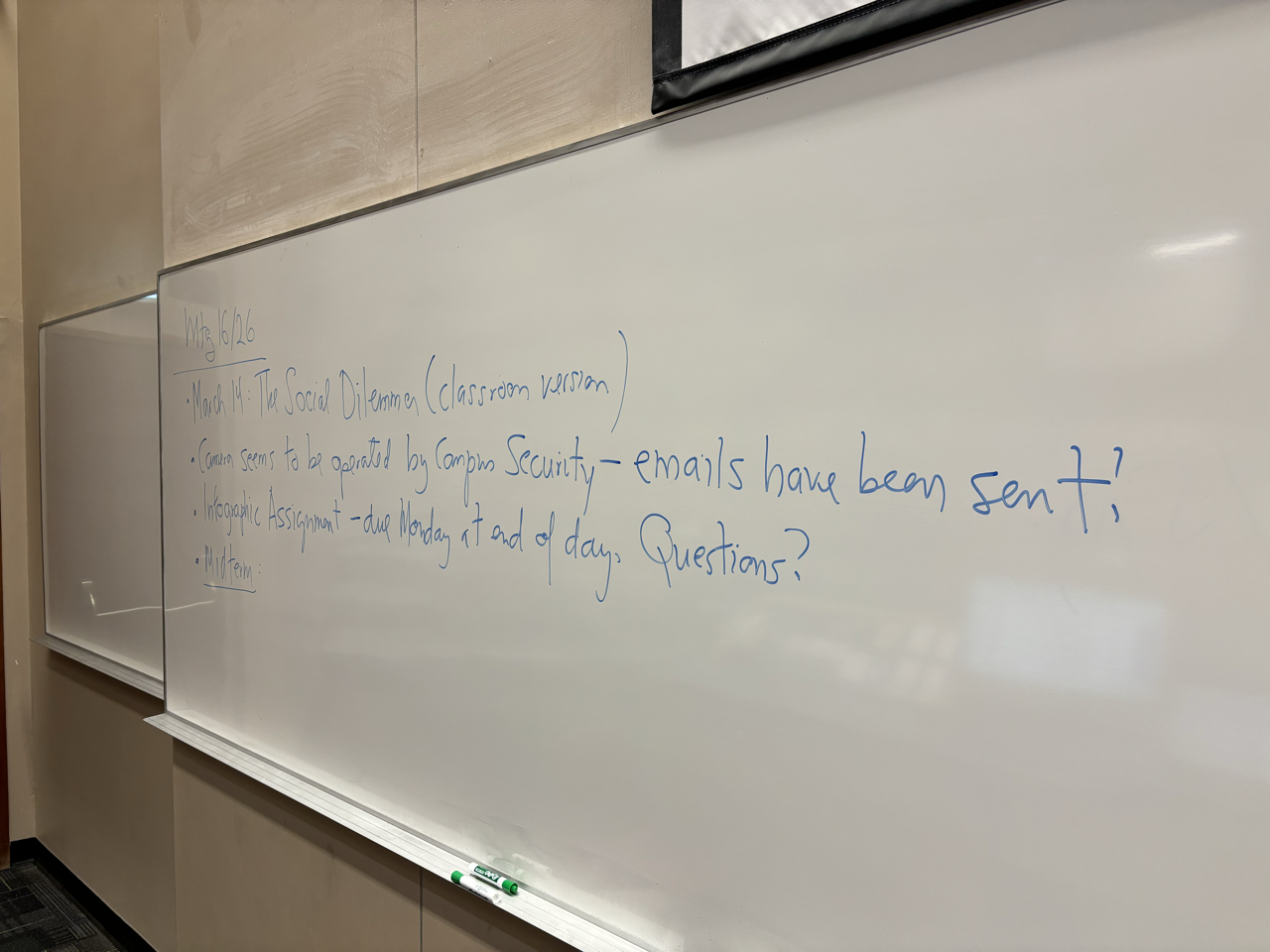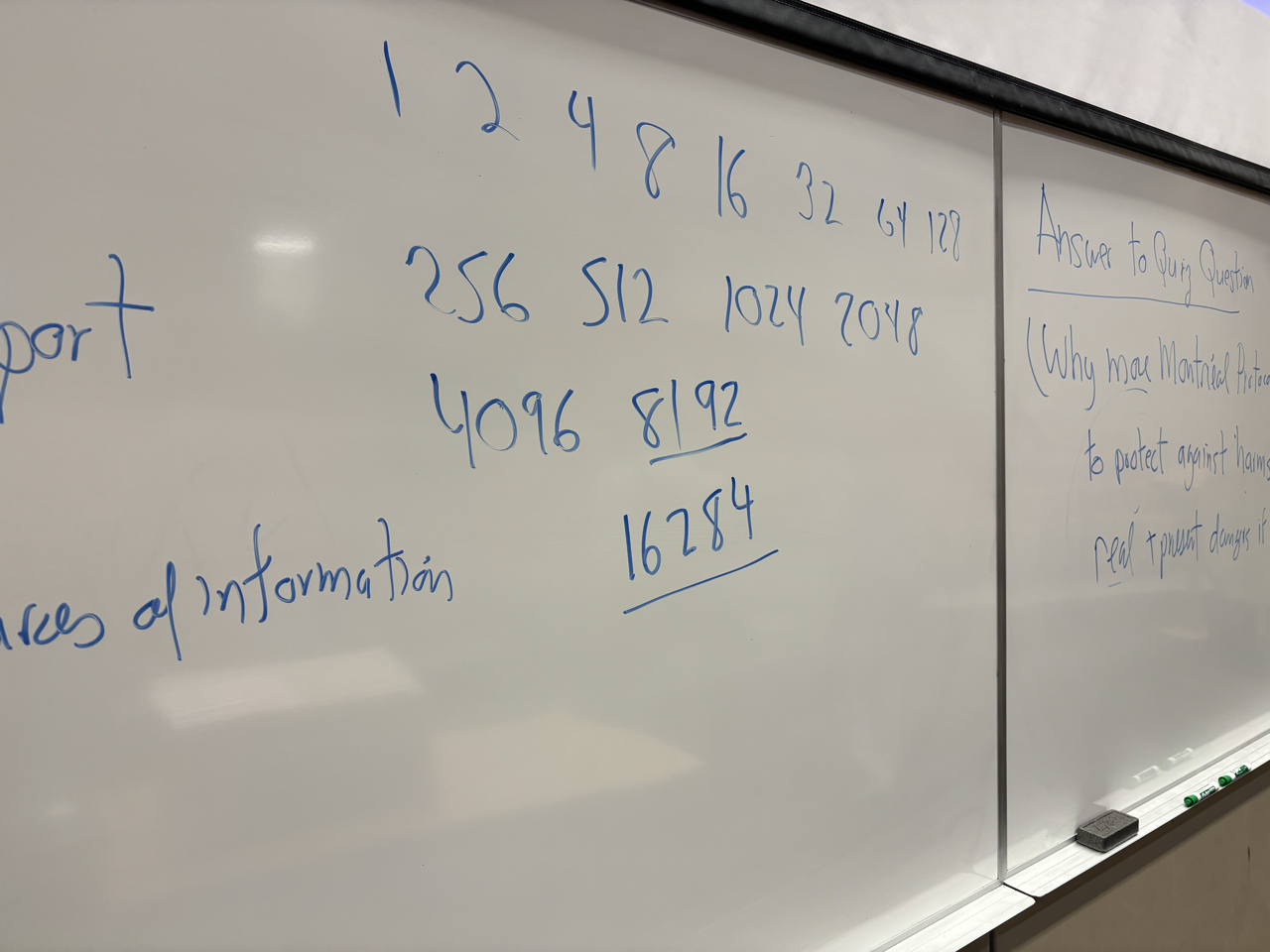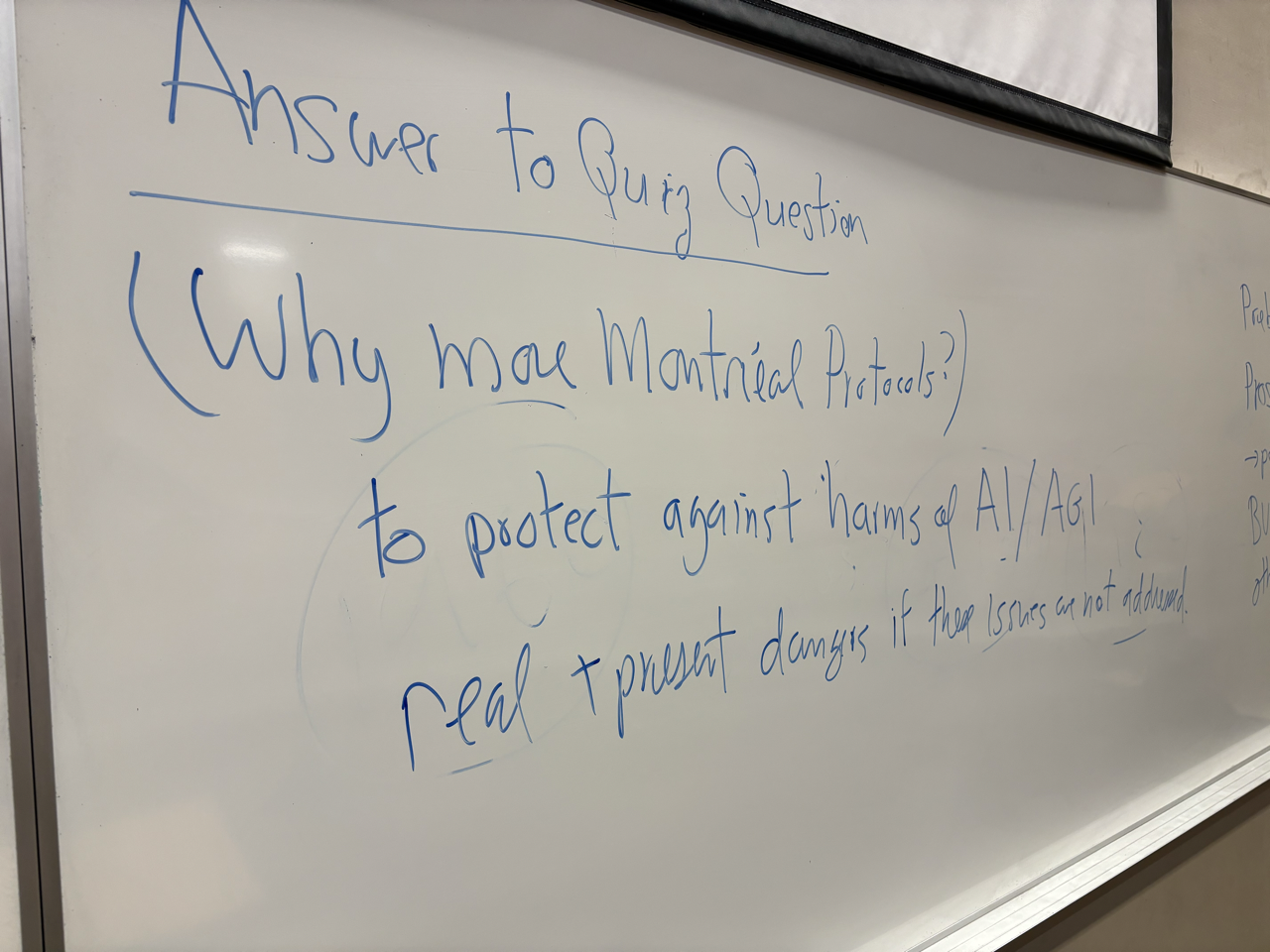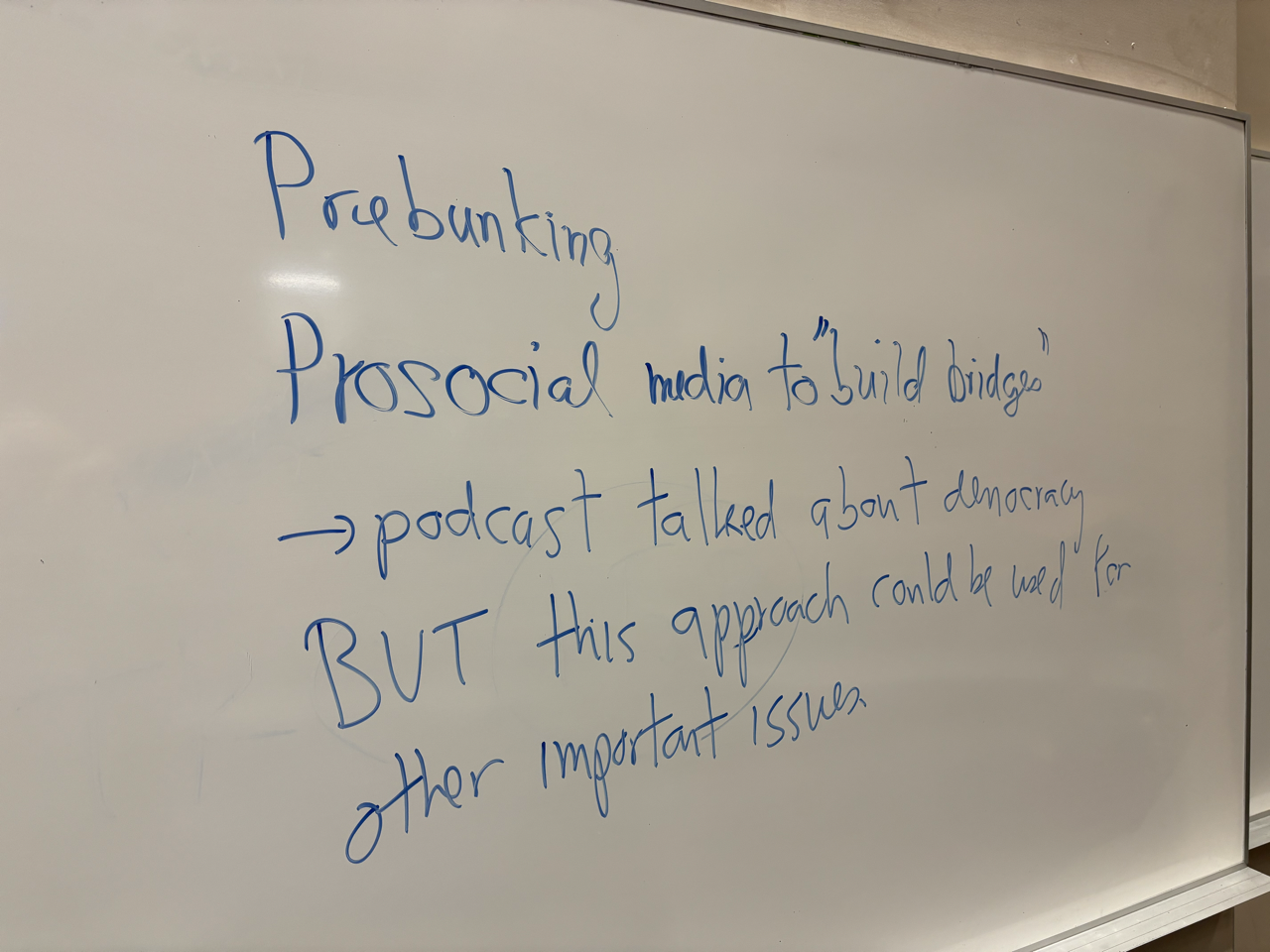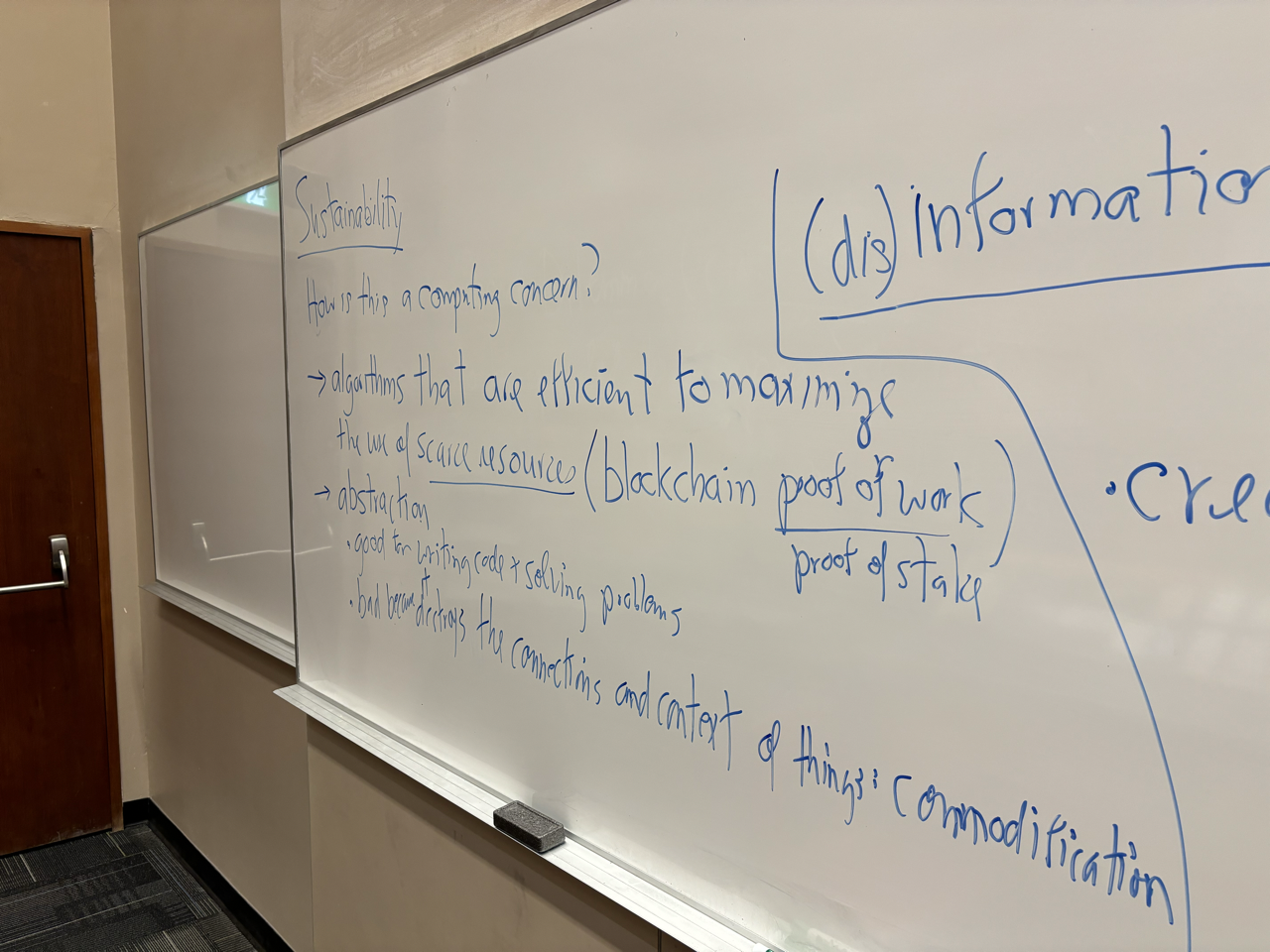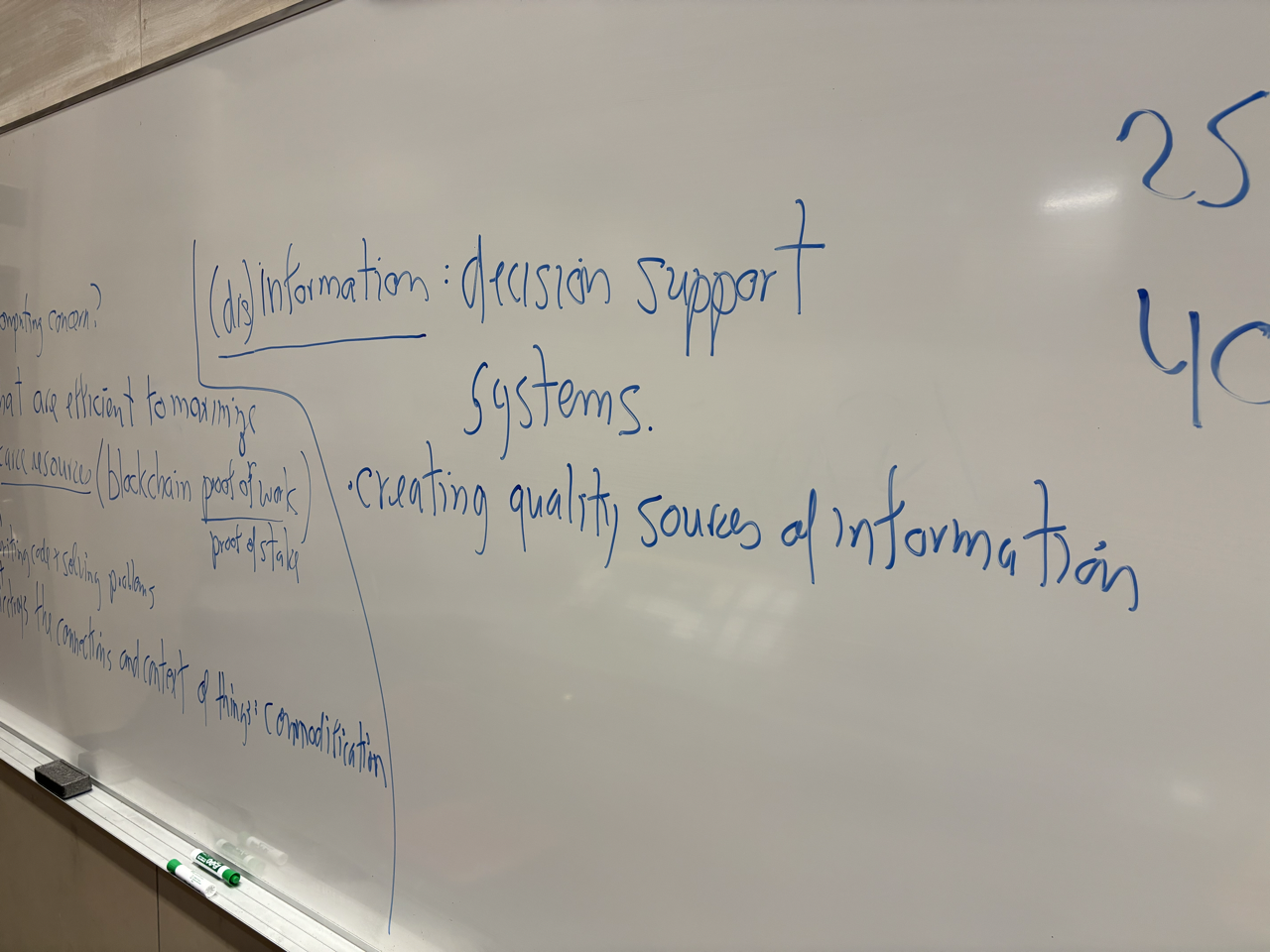Mtg 16/26: Thu-07-Mar-2024
Outline for Today
Midterm, Sustainability
Administration
- Happy Thursday
- Attendance
- Class calendar for today
- Upcoming events
Response to Responses
Response to responses
Today
- Midterm
- Didn’t mention Pocahontas in class before today, but you may be interested in this alternative audio track for the Disney film – Missing Matoaka
- Sustainability
Summary
Summary
For Next Meeting
- Submit your response to this meeting before noon tomorrow
- Take quiz before the start of our next meeting
ACTION: Take quiz before next meeting
Wiki
Link to the UR Courses wiki page for this meeting
